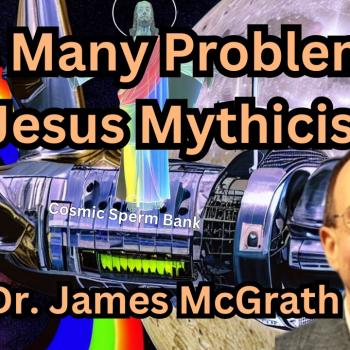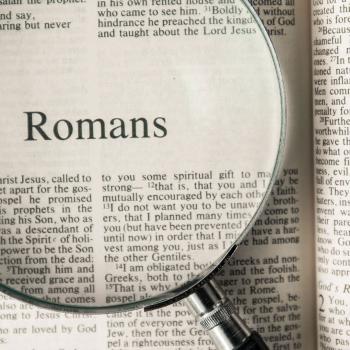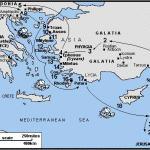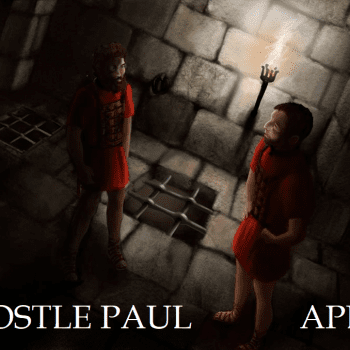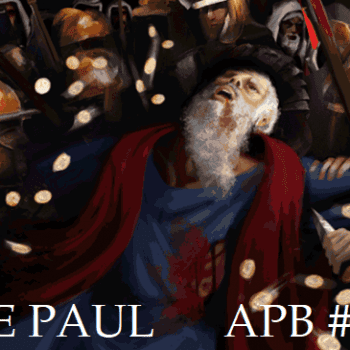I thought I should share this information about an upcoming online conference since there does not seem to be much info about it online and given the topic and presenters I know that my biblical studies colleagues who focus on Paul more than I do will want to attend.
Bratislava Conference 2022: September, 19–22
Receptions of Paul during the First Two Centuries: Exploration of the Jewish Matrix of Early Christianity
Location: Comenius University Bratislava, Evangelical (Lutheran) Theological Faculty (The conference will occur online as a virtual gathering via MS Teams)
Schedule
(Central European time) (Draft)
Monday, September 19, 2022:
14:00 – 14:15 – Opening
František Ábel, Maroš Nicák
14:15 – 19:45 – Session One: Knowing What’s What in the Early Reception of Paul the Apostle
14:15 – 15:15 James H. Charlesworth, Princeton Theological Seminary, USA Correcting Some Misperceptions About Paul
15:15 – 16:15 Michael Bachmann, University of Siegen, Germany
Observations on the Reception of the Pauline Expression “works of the law”
16:15 – 17:15 J. Brian, Tucker, Moody Theological Seminary, Plymouth, USA
The Perception of Paul’s Social Influence in the Corinthian Correspondence
17:15 – 17:45 Break
17:45 – 18:45 Paul B. Duff, George Washington University, USA
John’s Reading or “Jezebel’s”: The Contested Reception of 1 Corinthians in the Late First Century
18:45 – 19:45 Neil Elliott, Independent Scholar, USA
The Quintessence of Pauline Deracination
Tuesday, September 20, 2022:
13:30 – 14:00 – Informal gathering of participants
14:00 – 19:30 – Session Two: The Early Reception of Paul the Apostle in the Deutero-Pauline Letters
14:00 – 15:00 Stefan Krauter, University of Zürich, Switzerland
The Pastoral Epistles and the Jewish Paul
15:00 – 16:00 Kathy Ehrensperger, University of Potsdam, Germany
Gender Roles in the House and in the Ekklesia: Pauline Trajectories in the Pastorals
16:00 – 17:00 Karl Olav Sandnes, MF Norwegian School of Theology, Religion and Society, Norway
The Colossian “Philosophy” and Torah: Paul in a New Context
17:00 – 17:30 Break
17:30 – 18:30 Kenneth Atkinson, University of Northern Iowa, USA
The “Man of Lawlessness” as an Eschatological Enemy in Second Thessalonians and its Second Temple Period Jewish Background
18:30 – 19:30 Joshua Garroway, Hebrew Union College – Jewish Institute of Religion, USA
The Triumph of Paul in Portraits of Peter
Wednesday, September 21, 2022:
13:30 – 14:00 – Informal gathering of participants
14:00 – 19:30 – Session Three: The Early Reception of Paul the Apostle in the Acts of the Apostles
14:00 – 15:00 Jiří Lukeš, Charles University Prague, Czech Republic
From Pharisee to Ascetic. The Shift of the Image of the Apostle Paul in the Literature of the Genre of Acts
15:00 – 16:00 Ruben A. Bühner, University of Zürich, Switzerland
Paul’s Torah Praxis According to Acts in Light of Recent Reconfigurations of Paul’s Jewishness
16:00 – 16:30 Break
16:30 – 17:30 Istvan Ledan, Debrecen Reformed Theological University, Hungary
The Image of Paul in Act’s Speeches
17:30 – 18:30 Dančiaková, Valéria Terézia, Comenius University Bratislava, Slovakia
Charges against Paul in Acts 16:21: The Term τό ἔθος in the Context of Roman Law
18:30 – 19:30 Gabriele Boccaccini, University of Michigan, USA
The Reception of Paul in the Acts of the Apostles
Thursday, September 22, 2022:
13:30 – 14:00 – Informal gathering of participants
14:00 – 17:30 – Session Four: The Other Receptions of Paul the Apostle
14:00 – 15:00 Noffke, Eric, Facoltà Valdese di Teologia, Roma, Italy
How Pauline is the Gospel of John?
15:00 – 16:00 Pavel Paluchník, Evangelical Theological Seminary of Prague, Czech Republic
The Epistle to the Hebrews: A Consoling Appeal to Ostracized Jewish Christians (and non-Christian
Jews) in the Roman Empire?
16:00 – 17:00
František Ábel, Comenius University Bratislava, Slovakia
Παύλου συμμύσται ἐστε. Ignatius’ Reception of Paul and Jewishness in the Antiochean Context: Another Piece of Mosaic
17:00 – 17:30 Final evaluation of the conference
More information here
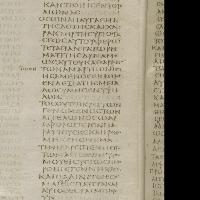 I had noticed before that this – like the warning about “a letter as though from us” – could be an attempt by the forger to fly under the radar, as it were, by providing reassurances and warning about forgeries. Since letters would by that time have been read in copies, there would be no actual change of handwriting. It’s a clever trick.
I had noticed before that this – like the warning about “a letter as though from us” – could be an attempt by the forger to fly under the radar, as it were, by providing reassurances and warning about forgeries. Since letters would by that time have been read in copies, there would be no actual change of handwriting. It’s a clever trick.



